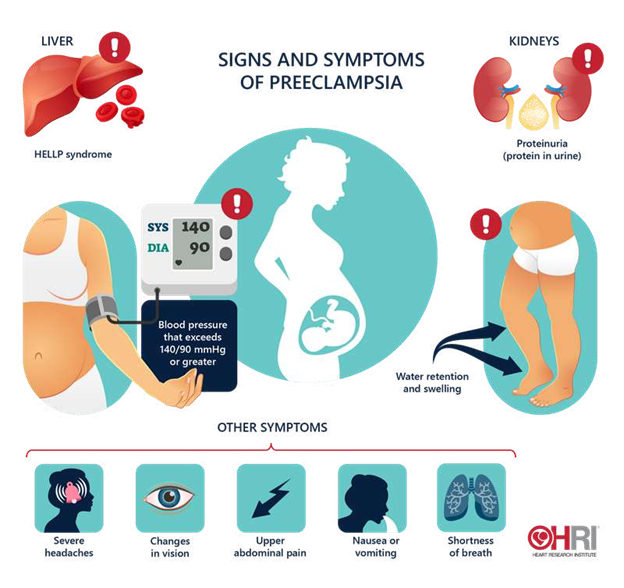A nurse is collecting data from a client who is at 29 weeks of gestation.
Which of the following findings should the nurse identify as a potential indication of a prenatal complication?
Leg cramps.
Ptyalism.
Blurred vision.
Melasma.
The Correct Answer is C
This can be a sign of preeclampsia, a serious complication of pregnancy that causes high blood pressure and proteinuria.

The nurse should report this finding to the provider and monitor the client’s blood pressure, urine protein, and reflexes.
Choice A is wrong because leg cramps are a common discomfort during pregnancy and are not usually a sign of a complication.
Choice B is wrong because ptyalism, or excessive salivation, is a normal physiological change during pregnancy and does not indicate a problem.
Choice D is wrong because melasma, or darkening of the skin on the face, is also a normal physiological change during pregnancy and does not pose a risk to the mother or the fetus.
Nursing Test Bank
Naxlex Comprehensive Predictor Exams
Related Questions
Correct Answer is D
Explanation
Use short phrases when talking to the client.
Some possible explanations for the other choices are:
Choice A is wrong because speaking in a louder than usual tone of voice during conversation can distort the sound and make it harder for the client to understand.
The nurse should speak in a normal tone and enunciate clearly.
Choice C is wrong because avoiding the use of hand gestures when talking to the client can limit nonverbal communication and reduce the client’s comprehension.
The nurse should use appropriate facial expressions
Correct Answer is C
Explanation
The nurse should explain that the injection is administered in order to prevent vitamin K deficiency bleeding (VKDB) in the newborn. Vitamin K is needed for blood clotting, but newborn babies have very low levels of vitamin K in their bodies at birth because only small amounts of the vitamin pass through the placenta and breast milk. VKDB can cause life-threatening bleeding in various parts of the body, such as the brain, intestines, or skin. VKDB can be classified into early-onset, classic, or late- onset depending on the time of presentation after birth. The most effective way to prevent VKDB is to give a single intramuscular dose of 0.5 to 1 mg of vitamin K to all newborn infants within 6 hours of birth.
Choice A is wrong because sepsis is not caused by vitamin K deficiency, but by bacterial infection.
Choice B is wrong because tachypnea is not caused by vitamin K deficiency, but by respiratory distress or other conditions.
Choice D is wrong because jaundice is not caused by vitamin K deficiency, but by high levels of bilirubin in the blood.
Whether you are a student looking to ace your exams or a practicing nurse seeking to enhance your expertise , our nursing education contents will empower you with the confidence and competence to make a difference in the lives of patients and become a respected leader in the healthcare field.
Visit Naxlex, invest in your future and unlock endless possibilities with our unparalleled nursing education contents today
Report Wrong Answer on the Current Question
Do you disagree with the answer? If yes, what is your expected answer? Explain.
Kindly be descriptive with the issue you are facing.
